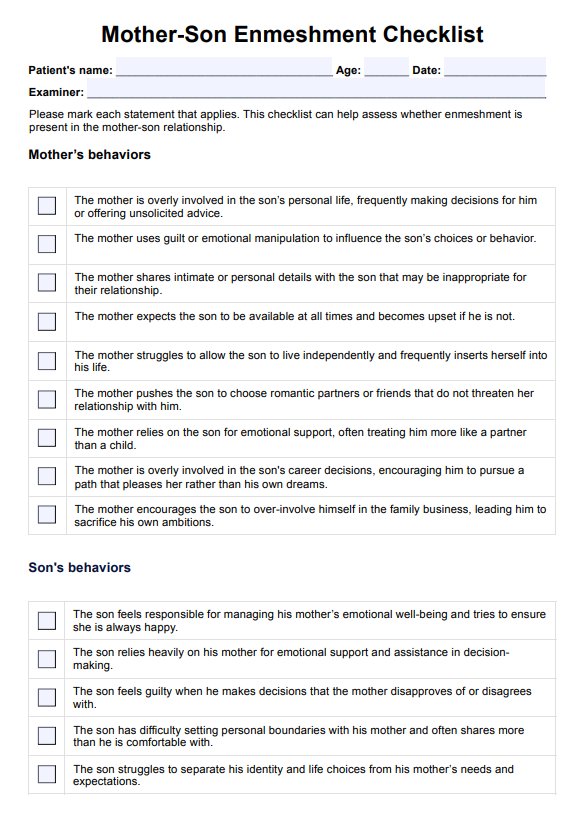Mother-son psychological issues often stem from enmeshed relationships, leading to over-dependence, difficulty establishing boundaries, and struggles with independence.

Mother-Son Enmeshment Checklist
Use our checklist to assess mother-son enmeshment. Understand its causes using our guide, and help establish healthy boundaries for emotional well-being.
Use Template
Mother-Son Enmeshment Checklist Template
Commonly asked questions
An unhealthy mother-son relationship involves a lack of emotional boundaries, where the mother becomes overly involved in her son’s personal life, stifling his independence.
Healing mother-son enmeshment involves establishing clear personal boundaries, seeking family therapy, and encouraging the son’s autonomy and self-identity.
EHR and practice management software
Get started for free
*No credit card required
Free
$0/usd
Unlimited clients
Telehealth
1GB of storage
Client portal text
Automated billing and online payments











